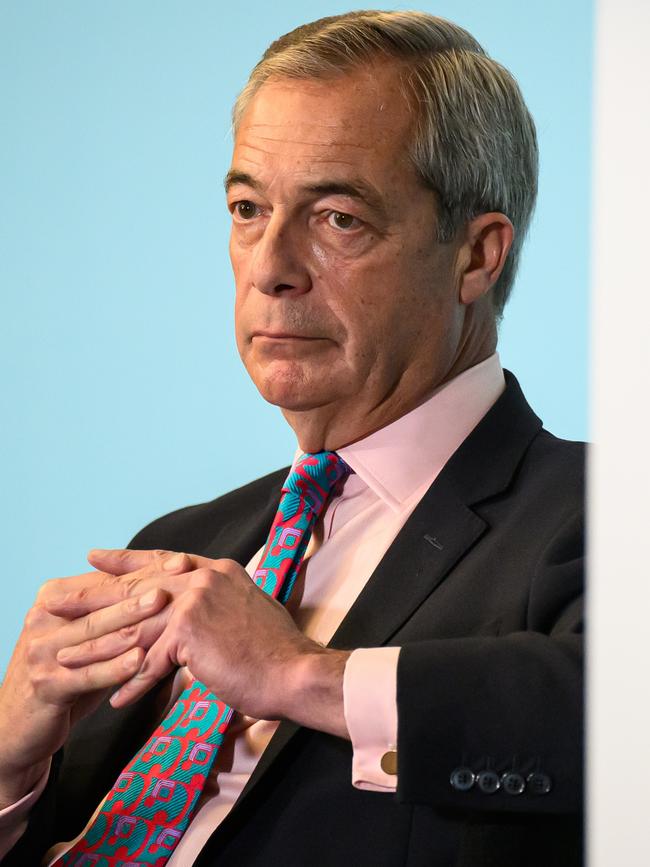
The media will tell you it has been a tough time for incumbents. And 2025 also promises to be heavy going for them.
We’re also told support for traditional parties of the centre right and the centre left is sliding. New parties often described as “populist” are increasing their electoral support. There’s an underlying assumption that voters are straying from traditional parties only because they’re being duped by social media, the Russians or other malign forces. How could they otherwise vote for “fascists and racists” such as Donald Trump, Giorgia Meloni, Marine Le Pen or Nigel Farage?
Well, perhaps there’s a simple explanation: the incumbents haven’t done a good job.
Defeated candidates and their supporters are expressing astonishment that they haven’t won. I understand their disappointment, having won and lost elections myself. But election defeat requires a certain modest introspection.
First, it’s largely overlooked by commentators but the pandemic has a long tail. The colossal public spending that accompanied the pandemic lockdowns had to be funded. It was funded by a combination of debt and what is known as quantitative easing.
Pumping all that money into the economy triggered inflation. So central banks had to try to tame that inflation, and that led to higher interest rates. Smart governments saw this problem and quickly cut spending. But some didn’t.
At the same time, governments have been addressing climate change. The energy transformation from fossil fuels to renewables sounds just great. Who could argue with that? Instead of using dirty oil and gas to power our lives and jobs we’ll just use wind and the sun. After all, they’re perfectly clean and they are in exhaustible.
There’s just one problem. Far from being cheap, they’re proving very expensive. The wind doesn’t always blow and at night it’s hard to get any sight of the sun. So there needs to be some backup. So once you include the cost of the backup and the enormous cost associated with the transmission of wind and solar farms to the market, the energy transition turns out to be rather expensive.
The public understandably wants the issue of climate change addressed but doesn’t want it addressed if it is going to mean big increases in energy prices, the flight of industries to countries where energy is cheaper and a collapse in growth. So not only have we seen inflation driven by pandemic spending, we also have seen big increases in energy prices that have had a very real impact on people’s living standards.


In Australia we have endured seven quarters in a row of real per capita GDP decline. Germany has been in recession for the best part of the past two years. For the past two months GDP has turned negative in Britain. Living standards in the EU generally are stagnating. Why should politicians get a prize for that?
The point is, most people have lived in an era when living standards would gradually improve year by year. During the past 50 years there has been a transformative increase in the living standards of people in developed countries and beyond.
But that growth has now stopped and the reason it stopped is because of a lack of investment in profitable enterprises. If the only investment is going to be government investment in what are essentially loss-making industries and activities – and that’s all you have – then you’re not going to see improvements in living standards. It’s a simple as that.
So centre-left and centre-right political parties in developed countries think they should get re-elected in this environment. The public doesn’t agree and that’s hardly surprising.
Add to that the issue of illegal immigration. It isn’t that in Europe, Britain, the US or for that matter our own country people are opposed to immigration per se. What they don’t like is illegal immigration. They know that tens of thousands of people every month are gaming the refugee system to circumvent the normal immigration procedures.
The publics of the developed world are concerned about the stress all this immigration is placing on essential services and housing. But I think they care even more about the impact it’s having on their traditions and way of life.
Governments are telling them they have to change their traditions and their way of life to accommodate the preferences of migrants. Again, I’m not entirely persuaded from experience that telling people to do that is a vote winner.

And finally there’s the issue of progressive authoritarianism. Policing the sort of language people use is likely to meet with a fair bit of silent resistance, expressed only when they go to vote. But more than that, those who promote diversity, equity and inclusion initiatives such as appointing, promoting and helping people on the basis of their innate characteristics, not their effort or energy, will be resented by many. Of course some people are winners because of their innate characteristics, but remember a lot of people are losers. The losers may think it is politically incorrect to complain, but you can rest assured they won’t be voting for people who discriminate against them on the basis of their characteristics, about which they have no control.
So all this explains why it comes as no surprise to me that there has been a seismic shift in the voting behaviour of people in developed countries.
You definitely saw it with the re-election of Donald Trump in 2024. You saw it in France, in The Netherlands, in Britain. And expect early in 2025 for the German government to be tossed out, and a new government that directly addresses the issues I’ve outlined to take its place.
What about Australia? Well, the public got rid of the Coalition government just 2½ years ago. It would be remarkable if, after only three years, voters turned on their relatively new government and re-elected the parties they had rejected. But don’t count on it. The Australian government is now making all the mistakes that the Europeans and the US Democrats have been making, and its only salvation is that it hasn’t been in power very long.
Alexander Downer was foreign minister from 1996 to 2007 and high commissioner to the UK from 2014 to 2018. He is chairman of British think tank Policy Exchange.






The year 2024 has been one of elections. More than 60 countries, containing around half of the world’s population, have been to the polls.